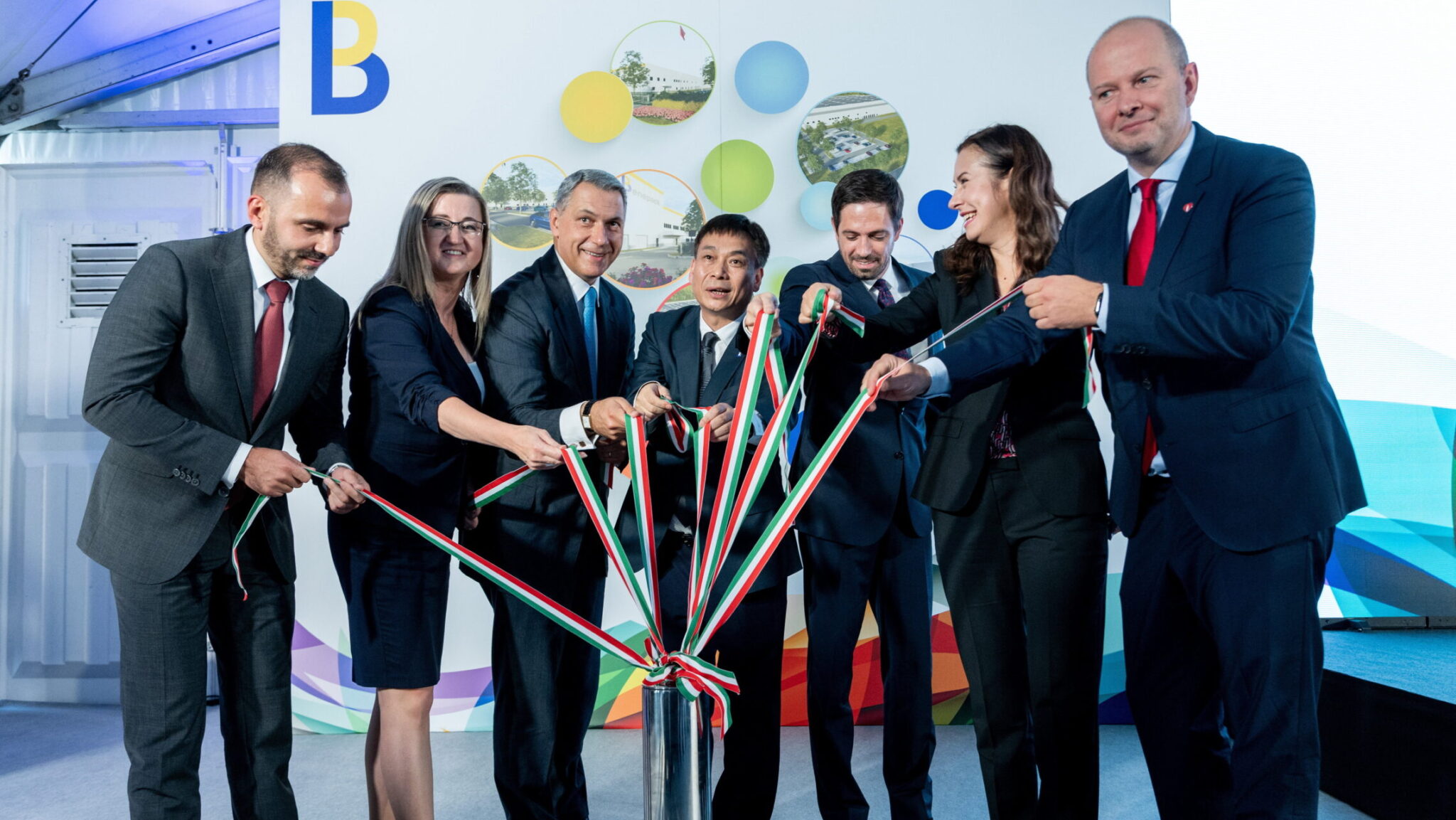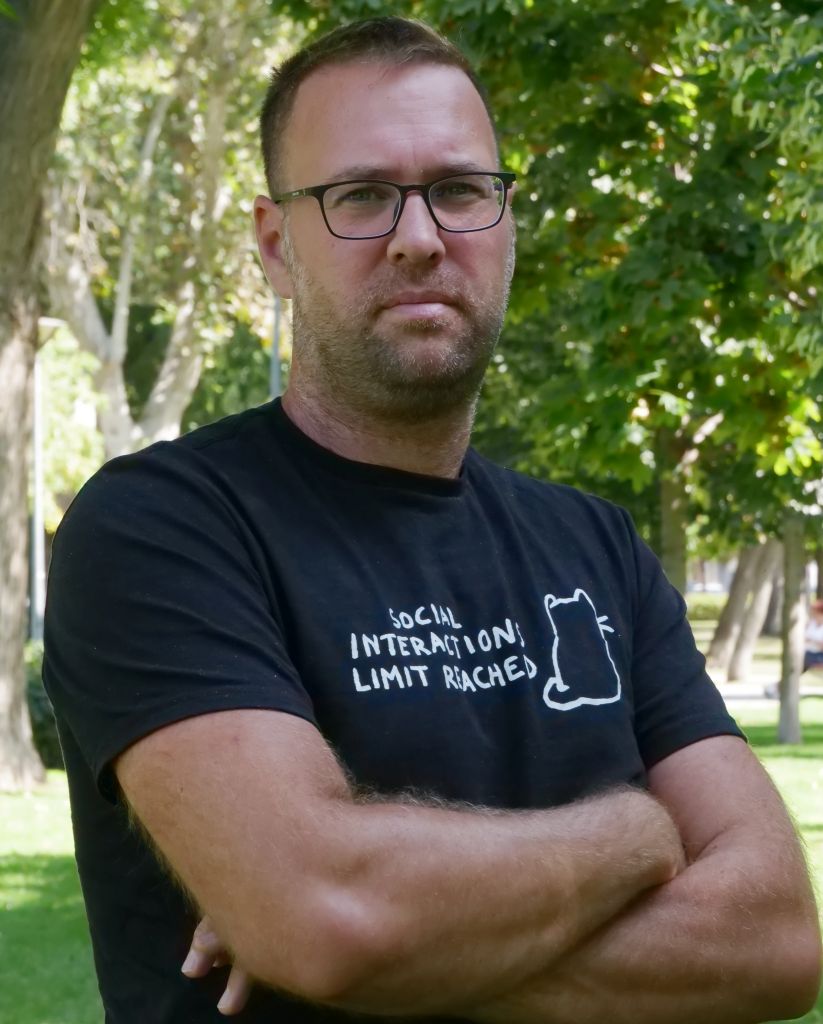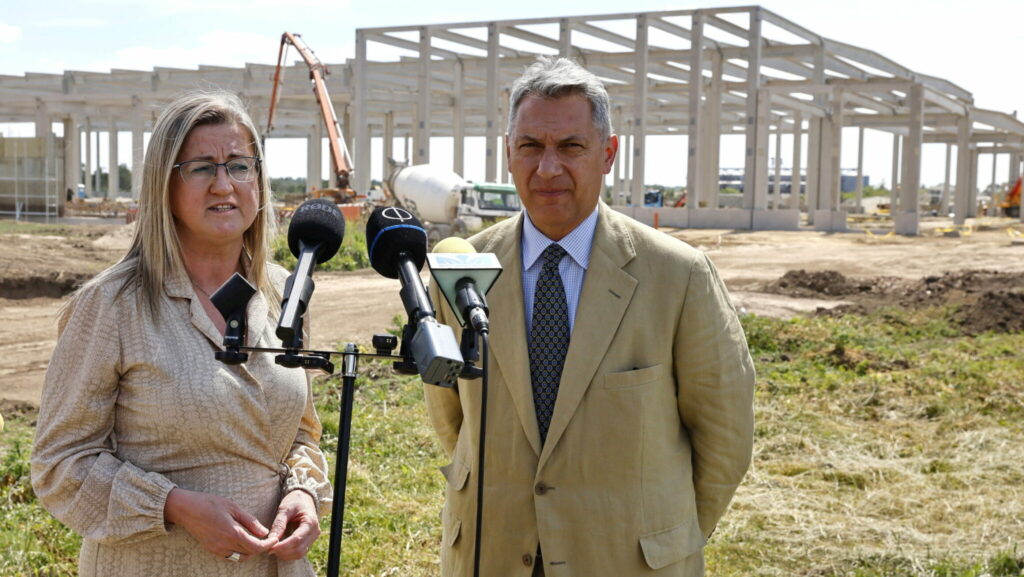The https://english.atlatszo.hu use cookies to track and profile customers such as action tags and pixel tracking on our website to assist our marketing. On our website we use technical, analytical, marketing and preference cookies. These are necessary for our site to work properly and to give us inforamation about how our site is used. See Cookies Policy
40 percent of workers are Chinese in a government-subsidies factory
Although the government provided generous support to the beverage-can manufacturer, the promised 120 Hungarian jobs in the Chinese-owned factory in Makó have not materialized, and local newspaper reports indicate that 40% of the existing workforce are Chinese. Neither the state investment promotion agency nor the Chinese company replied to our questions.
The foundation stone of Benepack Hungary Kft’s production unit park was laid in 2023. According to a government report at the time, Minister of Construction and Transportation Lázár János said that “the government granted the investment generous support,” and that within 12 months, the infrastructure to serve the factory should be completed, and that the factory could start operating in September 2024. They planned to build energy, water, and wastewater networks that would allow future expansion.

At the time, the communication was that the Makó plant – part of a 65-million-euro investment (about 25.3 billion HUF) – would employ 120 workers and could produce up to a billion two-piece aluminum cans per year.
The more than 10-hectare factory site’s utility development
was supported by the government with nearly 5.8 billion HUF.
A year later, a pro-government outlet wrote that Benepack planned to expand to 350 employees by 2029 in two phases, and according to their plans, would employ not only workers from Makó and the surrounding region but also Chinese workers. As of now, it is unclear which soft drinks the Makó factory will supply aluminum cans for – but it is telling that the management of Coca-Cola was present at the foundation-stone laying ceremony in March.

János Lázár, Minister of Construction and Transport, Fidesz Member of Parliament for the region (b3), Csang Je, Managing Director of Benepack Hungary Kft. and CEO of parent company COFCO Packaging (k), Levente Magyar, Parliamentary State Secretary of the Ministry of Foreign Affairs and Trade (j3), Amela Skapur, Strategic Procurement Manager at Coca-Cola HBC (j2), Dmitrenko Aleksey, Supply Chain Director at Coca-Cola HBC (j), Mayor Farkas Éva Erzsébet (Fidesz-KDNP) (b2), Joó István, CEO of the Hungarian Investment Promotion Agency (HIPA), Government Commissioner responsible for investment promotion and the implementation of major investments in Hungary (b) places the time capsule at the groundbreaking ceremony for the Benepack Hungary Kft. packaging materials factory in Makó on September 26, 2023. (photo: MTI/Rosta Tibor)
Many Chinese workers
At the foundation stone ceremony, the government politicians posed broadly smiling – but since then, there has been no news of an official grand opening. Production, however, has started: according to pro-government media, in August 2025, the factory had “officially started,” although there has still been no ceremonial ribbon-cutting.
According to the latest data from company registry services, in July there were 45 employees and in September 47.
In contrast, pro-government media in August said about 150 people worked there – the largest number the industrial park has ever seen. The registry data indicate that neither the originally promised 120 employees nor the 150 claimed by the press have materialised. Also, the count does not include leased workers – so if the Chinese factory does not directly hire people but leases them from another company, those do not show up under “employees.”
To clarify the situation, we contacted the state investment-promotion agency (the one that handled the 5.8 billion HUF support), asking when the plant started, how many employees it actually has, and whether the earlier promise of 120 jobs had been fulfilled. However, we received no answer – neither from the agency nor from the Chinese company.
A recent article in the local paper, Délmagyarország, citing the town’s pro-government mayor, reported that
currently 49 Hungarian and 33 Chinese employees are working at the Chinese processing plant
– a total of 82 people. According to the mayor, the factory is currently operating in a single-shift system; multi-shift work was expected to begin in the first quarter of next year. She also said that when asked in March about the number and proportion of workers, “we got no response.”
Thus, the factory in Makó has been built and is operating, but the previously communicated number of workers is nowhere to be seen. If only this small staff (about 50–80 people) remains employed, it means that Hungarian taxpayers subsidised each workplace with roughly 116 million HUF – and they didn’t just help the Chinese investor: the construction company behind the plant is Market Zrt., a construction firm closely linked to top figures of the governing Fidesz party.
Written by Csaba Segesvári, translated by Zalán Zubor. The original Hungarian version can be found here. Cover image: János Lázár, Minister of Construction and Transport, and Éva Erzsébet Farkas, mayor of Makó for Fidesz-KDNP, at a press conference held at the Makó industrial park on May 6, 2024, in front of the Benepack factory under construction (photo: MTI/Péter Lehoczky)
Share:
Your support matters. Your donation helps us to uncover the truth.
- PayPal
- Bank transfer
- Patreon
- Benevity
Support our work with a PayPal donation to the Átlátszónet Foundation! Thank you.
Support our work by bank transfer to the account of the Átlátszónet Foundation. Please add in the comments: “Donation”
Beneficiary: Átlátszónet Alapítvány, bank name and address: Raiffeisen Bank, H-1054 Budapest, Akadémia utca 6.
EUR: IBAN HU36 1201 1265 0142 5189 0040 0002
USD: IBAN HU36 1201 1265 0142 5189 0050 0009
HUF: IBAN HU78 1201 1265 0142 5189 0030 0005
SWIFT: UBRTHUHB
Be a follower on Patreon
Support us on Benevity!


